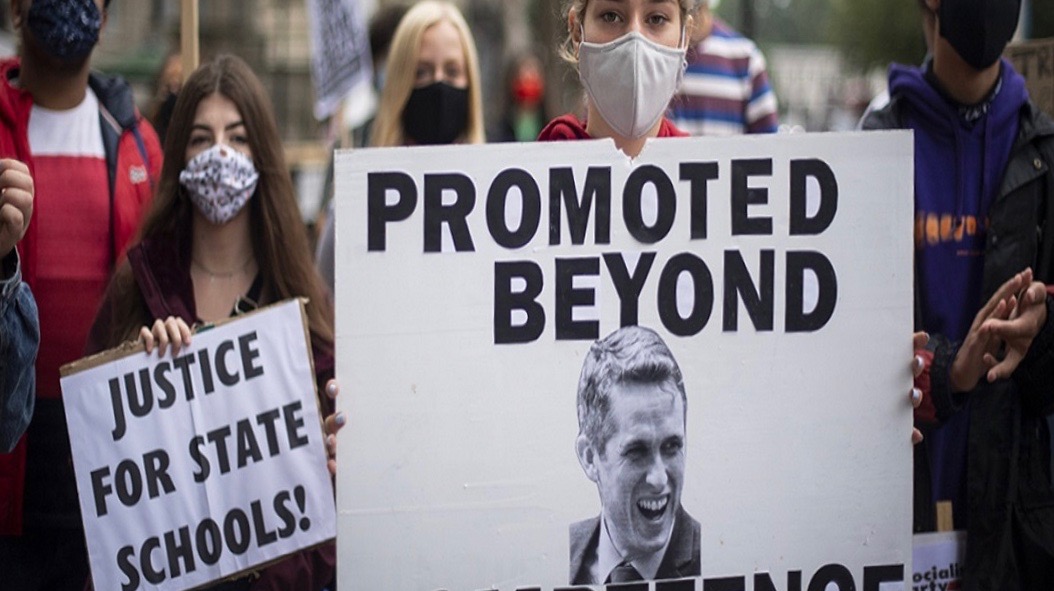Nearly a week after the British government was forced to reverse the grade assessment of A-level students following a major outcry, the results of the UK General Certificate of Secondary Education (GCSE) were published on August 20. According to reports, 78.8% (69.9% in 2019) of papers were rated grade 4(C grade in the old system) or above and there has been an increase in the award of higher grades too. The results of the GCSE were keenly awaited following the A-level results. The government opted for teachers’ predictions to determine the grades, following massive public outrage over the faulty grade assessments in A-level results published on August 17 by the Office of Qualifications and Examinations Regulation (OFQUAL). The advanced or A-level is the main test for gaining entry into universities in the UK.
Public examinations in the UK were officially cancelled due to COVID-19 on March 20, and most students finished their lessons only around the beginning of May. Thus neither A-level nor the younger GCSE students were able to write public exams. In this situation, the exam regulator OFQUAL decided to assign grades to students based on their past assessments. OFQUAL’s algorithm to standardize the results ended up downgrading hundreds of thousands of students, invoking a massive public outcry across the country. Finally, the government was forced to abandon the algorithm and go by teachers’ evaluations of the scores.
Various political and civil society organizations protested against the gross incompetence shown in the matter by prime minister Boris Johnson, education secretary Gavin Williamson and OFQUAL chair Roger Taylor, which put at stake the future of an entire batch of students in the UK. Those who protested the results include the Labor Party, Plaid Cymru, Young Communist League (YCL) of Britain, National Education Union (NEU), Association of School and College Leaders (ASCL), University College Union (UCU) and the National Association of Head Teachers.
A visible disparity in the A-level results of elite private schools and public schools in rural and working class neighborhoods was also pointed out by many. The downgrading disproportionately affected students from weaker sections, who could have been denied university seats and admission in professional courses. The higher grades of students in elite schools were sought to be maintained, allegedly, to protect the reputation of such schools.
Morningstar reported that a petition launched by National Education Union (NEU) on August 19, demanding a fairer GCSE and A-level exams next year got more than 25,000 signatures within the first 24 hours.
Following the government’s U-turn, Labor MP Jeremy Corbyn tweeted on Monday, “this u-turn from the government wouldn’t have happened without the #A Level Protests from so many young people, the important work of the teaching unions and everyone who spoke out. My solidarity to all those who took a stand.”
“Students should be marked on merit, not their postcode. The Tories’ A-levels fiasco must not rob young people of their future,” he had tweeted earlier.
The Young Communist League (YCL) of Britain had also condemned the government’s attack on the rights of working class students, and urged the youth to organize in their schools and communities and resist the unjust results by OFQUAL.





